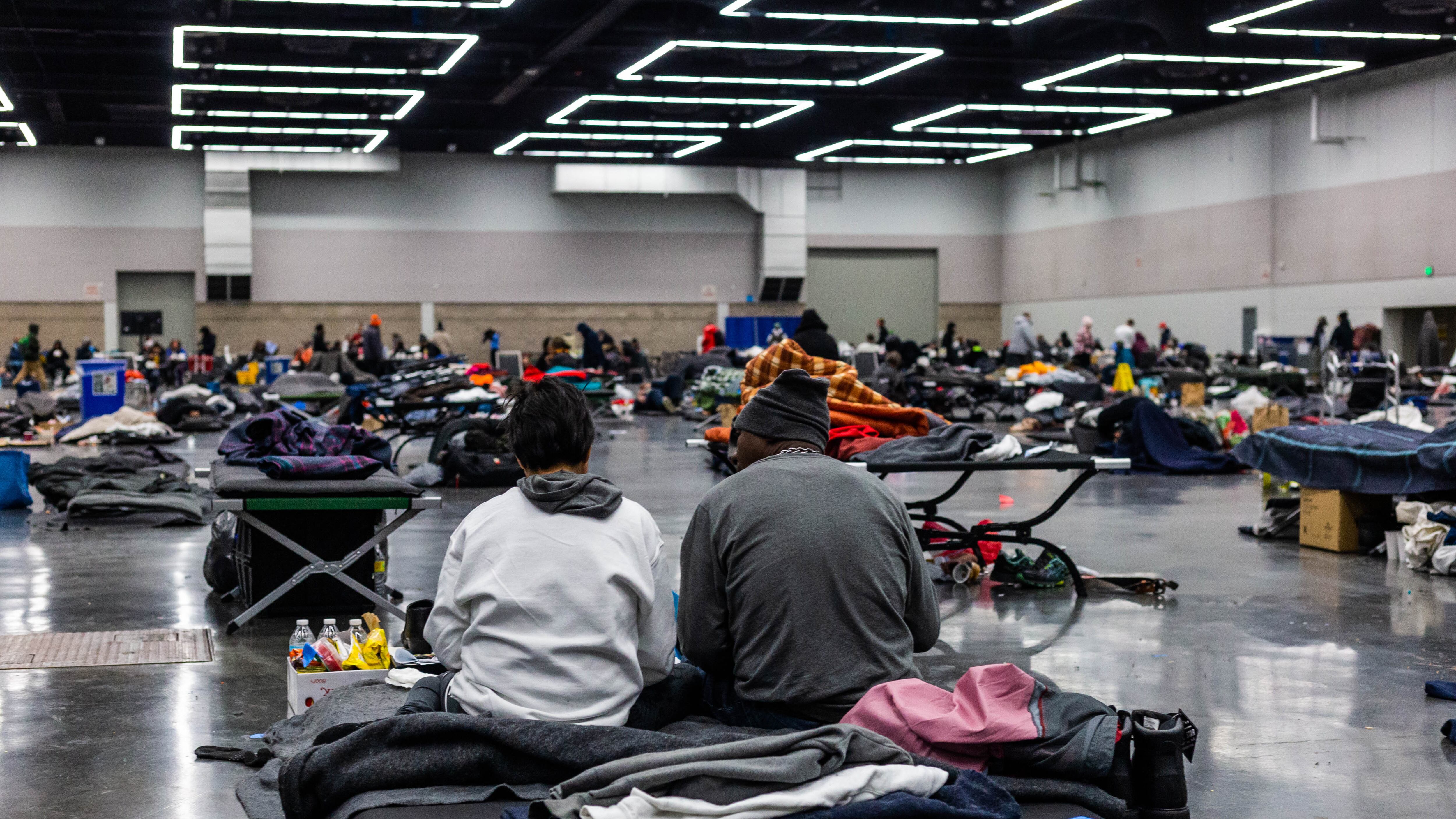For five nights last week, as frigid winds and freezing rain incapacitated the city, Multnomah County oversaw emergency warming shelters that harbored as many as 1,200 people a night. The sudden closure of those shelters at noon Wednesday, before most of the snow and ice melted from sidewalks, drew widespread and intense criticism. County officials responded that they made the decision based on an inaccurate weather forecast, and that ramping up staffing in the shelters would have been very difficult.
One of those difficulties is made more clear in documents.
Portland officials allowed city employees to volunteer in the warming shelters. But an agreement dated Jan. 8, signed by city and county leaders, shows the city did so only conditionally.
That agreement, a copy of which was obtained by WW, suggests the city was unhappy with how the county ran weather shelters last year, and had particular concerns about the safety of city employees who volunteered to work shifts at the shelters. Specifically, the city demanded that any city-owned facility used as a shelter or a shelter in which city employees were working shifts must be supplied with county-funded security guards.
“The county understands that failure to provide security will result in the city restricting access to support staffing through city staff or Neighborhood Emergency Team volunteers,” the agreement reads.
The document also suggests the city doesn’t want to be involved in the county’s emergency weather shelter operations unless the circumstances are dire. The breakdown of volunteers at this past week’s warming shelters reflects that: County employees filled 69% of the shifts; community volunteers covered 7%; city employees worked 6.5%.
“Requests must be submitted 48 hours in advance of the day(s) the county needs support. The city will respond within 6 hours of notification confirming whether or not it will be able to meet the request,” the agreement reads. “The county will prioritize and exhaust all other options before requesting the use of city facilities.”
(The agreement also stipulates that the county “must provide sustainable flooring protection for each activated city site” to reduce damage to city facilities.)
City leaders have criticized the county for years for not funding and operating more shelter beds. That fight has taken place amid mounting tensions over the role of the Joint Office of Homeless Services, an operation shared by the city and county whose agenda is set primarily by the county chair. Now, in a reversal, city officials are withholding city support of severe weather shelters unless certain conditions are met.
City and county representatives characterized the shelter changes as a friendly shift of responsibilities, and said little about the tensions that precipitated the Jan. 8 agreement, though a spokesman for Mayor Ted Wheeler said that “shelter safety concerns have been an ongoing discussion between Mayor Wheeler, Chair [Jessica Vega Pederson], and their staffs.”
County spokeswoman Julia Comnes said the city’s participation in emergency shelters this year is “reduced.” The city, Comnes said, will no longer work on securing sites for emergency shelter, nor will it provide ground transportation to shelters. City employees will no longer serve as de facto managers at weather shelters; only county employees will assume those roles.
“In the past, the city has been a part of what’s called ‘unified command’ during weather emergencies, helping decide when to open cooling or warming spaces, and marshaling resources,” Comnes said. “This year, the city’s role is reduced. It transferred some of its technical support to the county, and the county took over the work of providing ground transportation. The county also took the lead in planning for this emergency, issuing an emergency declaration, and securing shelter sites.”
Bowman said the city is “prepared to continue fielding severe weather resource requests by the county as they arise and looks forward to working collaboratively to develop a longer-term strategy, inclusive of other partners.”

